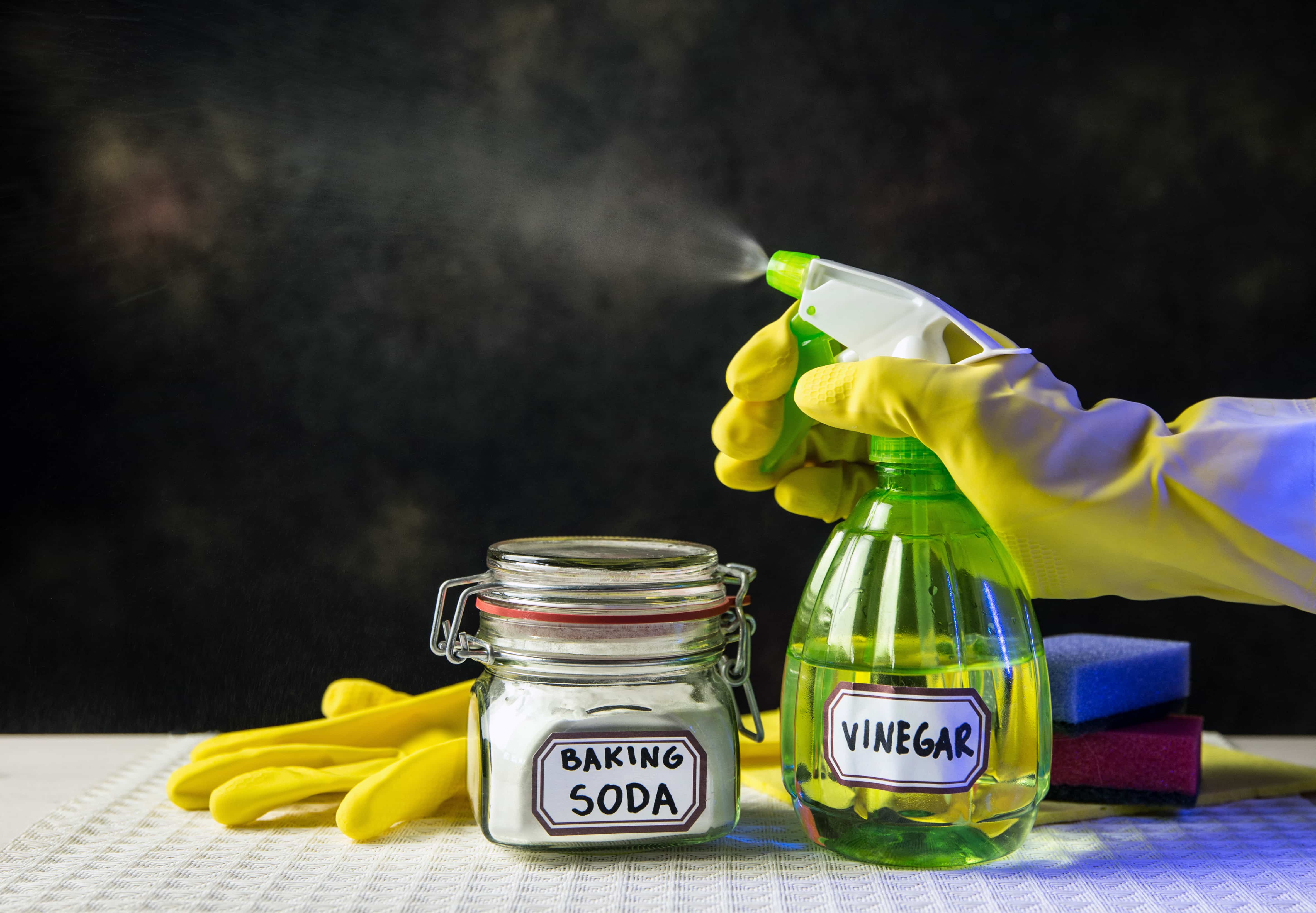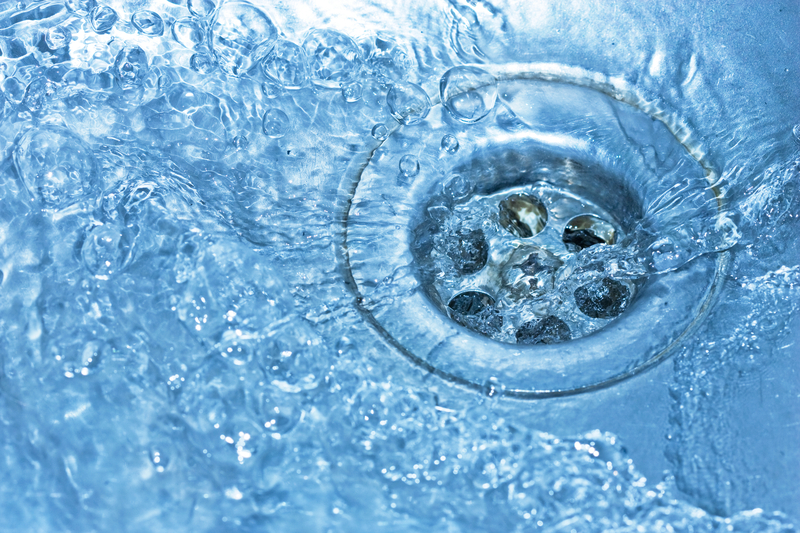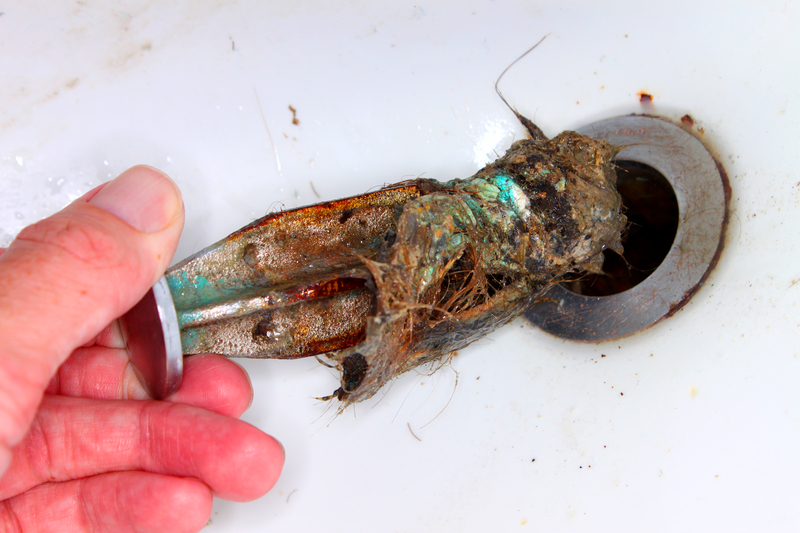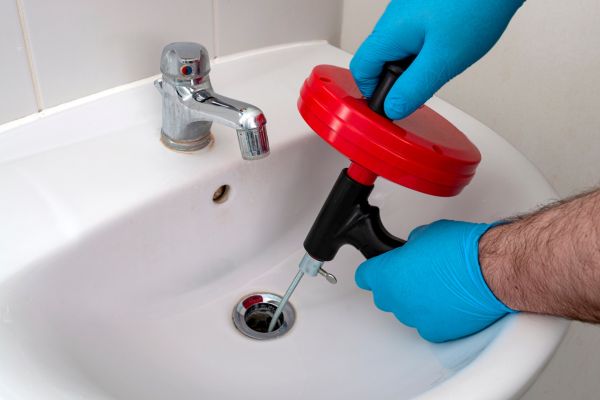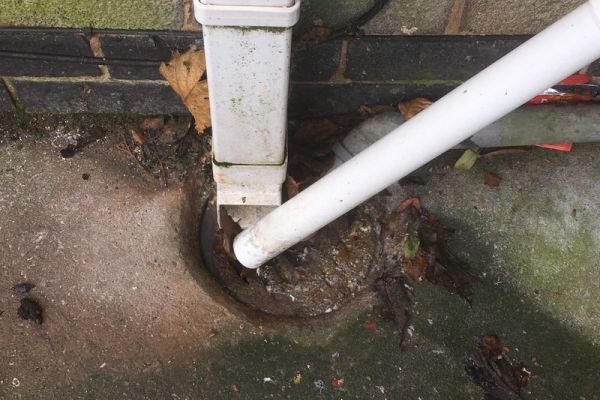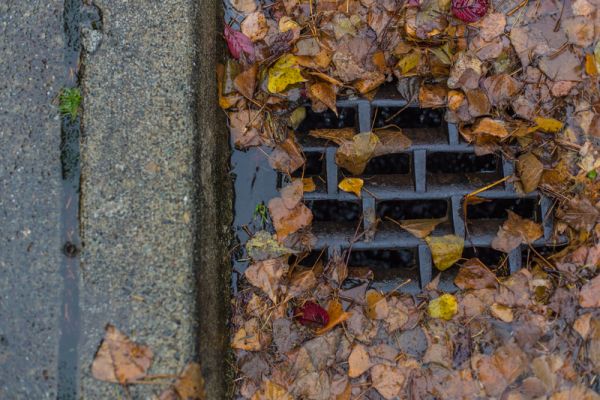In this article
How to unblock a drain?
Picture this - it's a busy morning, and you're rushing to get ready for work. As you step into the shower, you notice something alarming - the water isn't draining properly, and it's starting to rise around your feet. Panic sets in as you realise you have a blocked drain on your hands.
Dealing with a drain unblocking can be incredibly frustrating. Not only does it disrupt your daily routine, but it can also lead to unpleasant odours, potential water damage, and even health hazards. That's why it's crucial to maintain proper drainage in our homes and address blockages promptly.
This article will walk you through a step-by-step process to fix your drain blockage effectively. From simple DIY methods to more advanced techniques, we'll equip you with the knowledge and tools needed to tackle those stubbornly blocked drains and sort out your drainage system. So, let's dive in and reclaim the smooth, hassle-free water flow in our homes!
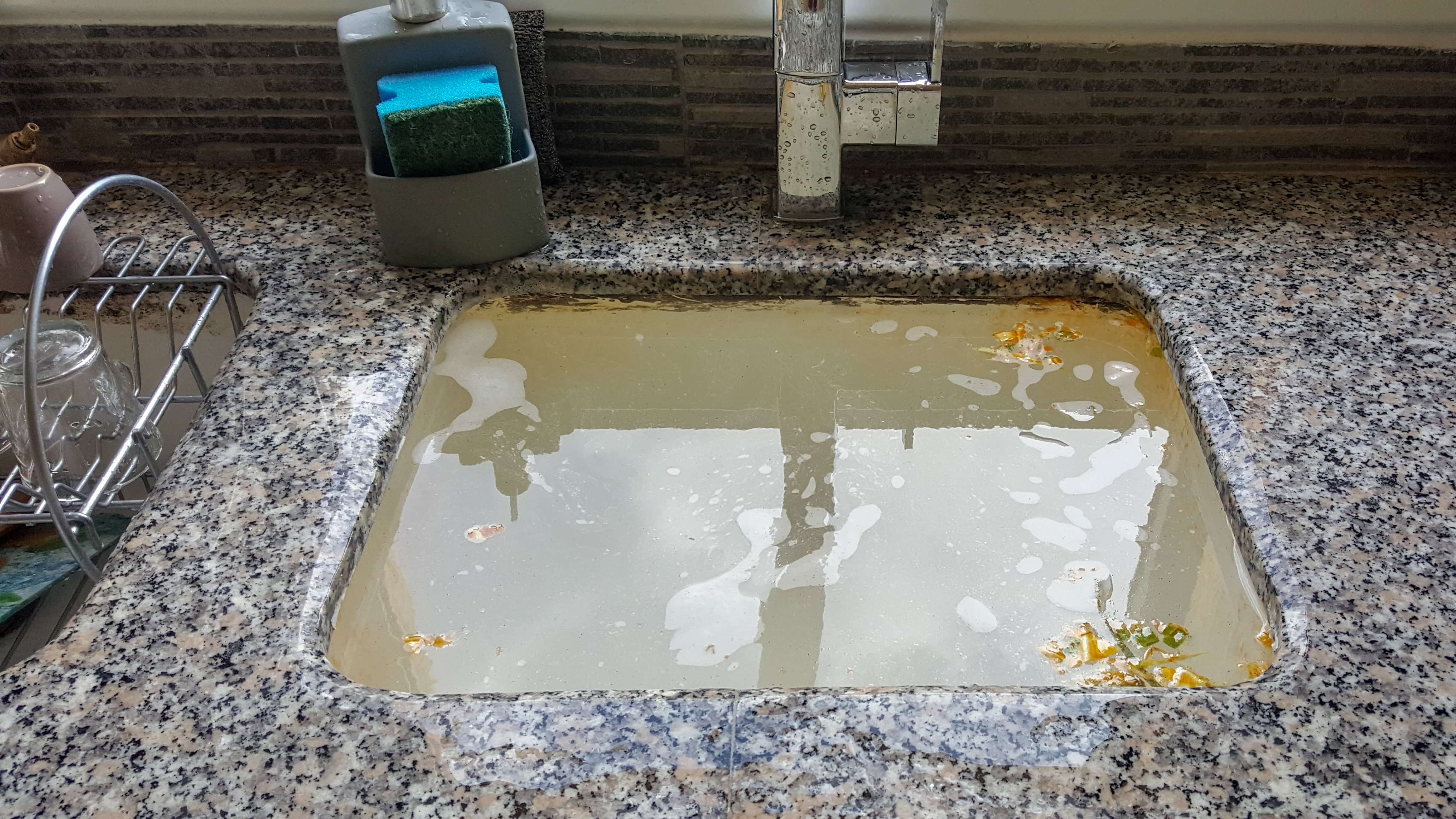
Why is your drain blocked?
Blocked drains can be caused by various culprits, and understanding these common causes is crucial to effectively tackle the issue. Let's take a closer look at some of the main offenders and how they contribute to drain blockages:
Hair
From showering, shaving, or grooming, strands of hair can easily get caught in the drain and form clumps over time. These hairballs act as a barrier, preventing water from flowing freely.
Oils Oil
When we wash dishes or cook, grease and oil are often rinsed down the kitchen sink. Over time, these greasy substances can accumulate and solidify inside the pipes, constricting water flow and attracting other debris.
Food Particles
Food particles such as coffee grounds, vegetable peels, and leftover scraps can find their way into the drain in the kitchen. These particles can build up and form stubborn blockages, especially when combined with grease or oil.
Soap Residue
Soap residue is often overlooked as a contributor to drain blockages. Soap contains fats and oils that can harden and stick to the pipes' inner walls, narrowing the water passageway.
Other items
Sometimes, accidents happen, and small objects like jewellery, toys, or sanitary products may accidentally fall down the drain. These foreign objects can cause significant blockages and require special attention to remove.
Preventing future drain blockages through regular maintenance is essential to avoid a blocked drain. Here are a few tips to keep your drains flowing smoothly:
- Use drain covers or screens: Install them to catch hair, food particles, and other debris before they enter the drain.
- Dispose of grease properly: Instead of pouring grease down the sink, allow it to cool and solidify, then dispose of it in the trash.
- Clear food debris: Scrape food scraps into the trash or compost bin instead of rinsing them down the sink.
- Regularly clean drains: Flush drains with hot water regularly to help prevent the accumulation of residue and small blockages.
Small Drain Unblocking
When it comes to minor blockages, there are several simple and effective DIY methods you can try before resorting to more advanced techniques. These methods often involve using common household ingredients that are both readily available and environmentally friendly. Let's explore some of these techniques:
Hot Water:
- Start by boiling a kettle or heating a large pot of water.
- Carefully pour the hot water directly into the blocked drain in two to three stages, allowing each pour to work its way through before adding more.
- Wait for a few minutes and check if the blockage has cleared. Repeat the process if necessary.
Hot water helps to melt and flush away minor blockages caused by substances like grease, soap residue, and light debris. It is a simple yet effective method that can often provide immediate results.
Baking Soda and Vinegar:
- Begin by pouring one cup of baking soda down the drain.
- Follow it up with one cup of vinegar. The combination of baking soda and vinegar will create a fizzy reaction.
- Allow the mixture to sit for about 15-30 minutes, giving it time to break down the blockage.
- Finally, flush the drain with hot water to remove the dissolved residue.
Baking soda and vinegar work together as a natural cleaning agent and can help dissolve organic matter, eliminate odours, and remove minor blockages. This method is safe for most types of drains and pipes.
Larger Drain Unblocking
For more stubborn or larger blockages, simple DIY methods may not be sufficient. In these cases, it's important to employ more advanced techniques to unblock the drain effectively. Let's take a look at some of these.
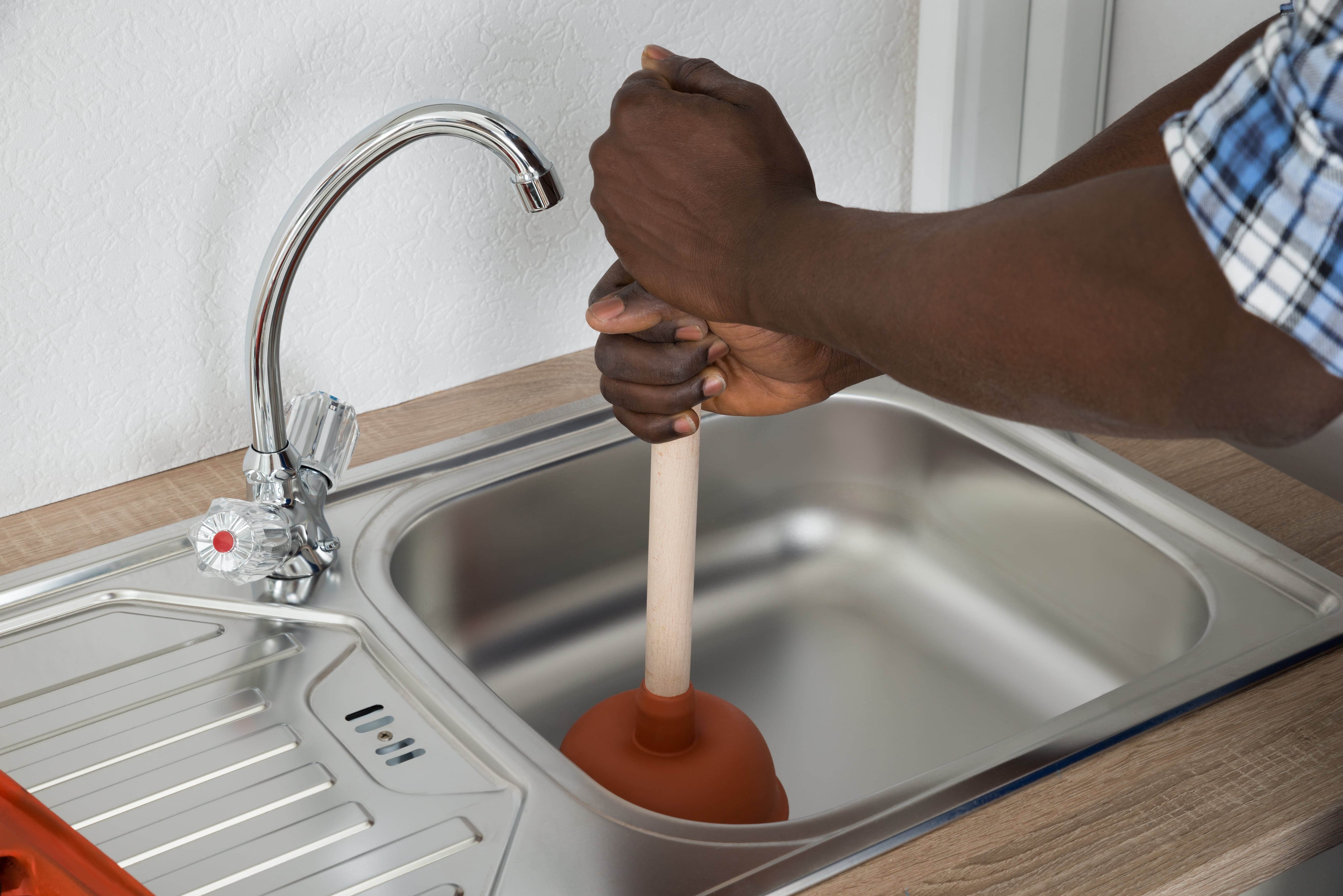
Plunger Method:
- Start by ensuring there is enough water in the sink or tub to cover the rubber portion of the plunger.
- Place the plunger over the drain and firmly press it down to create a seal.
- Begin plunging vigorously up and down for about 20-30 seconds.
- Repeat this process a few times, then quickly pull the plunger away to break the suction.
The pressure created by plunging can dislodge the blockage by forcing air and water through the pipe, helping to clear the way. If the blockage persists, you may need to try another method.
Plumbing Snake
- Insert the end of the plumbing snake into the drain opening.
- As you feed the snake in, rotate the handle clockwise to help it navigate through the pipe.
- Once you encounter resistance, continue to rotate and push the snake further until you feel it break through the blockage.
- Slowly retract the snake from the drain, taking care not to damage the pipes.
A plumbing snake is a flexible tool designed to reach deeper into the plumbing system and physically break apart or remove the blockage. It can be highly effective for stubborn clogs caused by solid objects or compacted debris.
Chemical Drain Cleaners (if necessary):
If the previous methods haven't resolved the blockage, you may consider using a chemical drain cleaner as a last resort.
Chemical drain cleaners contain powerful ingredients that dissolve or break down stubborn blockages. However, they should be used sparingly and cautiously, as they may cause damage to pipes and pose health risks if mishandled.
- Follow the instructions on the product carefully, as different cleaners have varying usage guidelines.
- After pouring the recommended amount of cleaner into the drain, allow it to sit for the suggested waiting time.
- Flush the drain with hot water to help clear away any remaining residue.
Remember
It's crucial to read and follow the instructions provided with chemical drain cleaners carefully. Each brand and type of cleaner has specific usage guidelines, recommended quantities, and safety precautions. Failure to follow these instructions can lead to ineffective results, damage to plumbing systems, and potential health risks.
It's important to note that if these methods don't successfully clear the blockage, it may be best to consult a professional plumber who can assess the situation and utilise specialised tools and techniques to resolve the issue safely and effectively.
Most chemical drain cleaners contain harsh chemicals that can harm the environment. When flushed into wastewater systems, these chemicals can end up in lakes, rivers, and groundwater.
Alternatives
Enzyme-based Drain Cleaners For those concerned about the drawbacks of chemical drain cleaners, enzyme-based drain cleaners can be a safer and more environmentally friendly alternative. These cleaners use natural enzymes and bacteria to break down organic clogs over time. They are generally non-corrosive, non-toxic, and pose minimal risks to plumbing systems, people, and the environment.
Safety Measures for Tools and Techniques
When using tools like a plunger or plumbing snake to tackle stubborn clogs, it's important to follow proper techniques to avoid causing damage to your plumbing system. Here are some guidelines to ensure safe and effective usage:
Plunger Method Considerations:
- Ensure enough water is in the sink or tub to cover the rubber portion of the plunger. This helps create a seal and improves suction.
- If you have a double sink, cover the second drain with a wet cloth or drain stopper to prevent air from escaping.
- Press the plunger down firmly over the drain to create a tight seal. Make sure there are no gaps for air to escape.
- Use vigorous up and down motions, maintaining a steady pace. The force generated by the plunging action can dislodge the blockage.
- Avoid using excessive force, as this can damage or loosen pipe connections.
Safety Precautions:
- Wear rubber gloves to protect your hands from dirty water or any potential contaminants.
- If you have used a chemical drain cleaner before plunging, be cautious of any splashes or residues that may cause irritation. Consider wearing eye protection and follow the cleaner's instructions regarding safety precautions.
Plumbing Snake Method Considerations
- Insert the end of the plumbing snake into the drain opening, allowing it to go as far as possible.
- Rotate the handle clockwise as you feed the snake further into the drain. The rotation helps the snake navigate through bends and obstacles.
- If you encounter resistance, continue rotating and pushing the snake forward until you feel it break through the blockage.
- Slowly retract the snake while continuing to rotate the handle, ensuring it doesn't get stuck or damage the pipes.
- Clean the snake thoroughly after each use to prevent debris or residue from contaminating other surfaces or drains.
Safety Precautions:
- Be cautious when handling the plumbing snake, as its pointed end and potential resistance can cause injury if not used properly.
- Avoid applying excessive force or using a snake with sharp edges, as this can damage the pipes.
General Tips
- Never use a plunger or plumbing snake after pouring chemical drain cleaners down the drain. Some cleaners can produce toxic gases when mixed with other substances.
- If using a chemical drain cleaner, always follow the instructions carefully, including recommended wait times and proper ventilation.
- Wear protective goggles or safety glasses to shield your eyes from splashes or debris.
- If your efforts to clear the blockage are unsuccessful or unsure about using these tools, it's best to consult a professional plumber for assistance.
Seeking Professional Assistance
Knowing when to call a professional plumber for your blocked drain is essential to properly resolve plumbing issues. While many minor blocked drains can be resolved with DIY methods, there are situations where professional assistance is necessary. Here are some instances where you should consider calling a plumber for drain cleaning and drain unblocking services.
- Persistently blocked drains: If you've attempted DIY methods multiple times, but the blocked drain keeps coming back, and your drain won't drain properly, it indicates a deeper issue within the plumbing system. A plumber can identify and address the root cause and offer a drain clearance.
- Multiple Blocked Drains: If several drains in your home are experiencing simultaneous blockages, it may indicate a larger problem in the main sewer line. A professional plumber has the expertise and tools to diagnose and fix such issues.
- Noisy or Slow Draining: If you notice gurgling sounds or slow drainage in multiple fixtures, it could indicate a blocked drain or damaged pipes further down the line. A plumber can assess the situation and recommend appropriate solutions for unblocking drains.
- Foul Odors: Persistent foul smells emanating from blocked drains can signal a more significant issue, such as a sewer line blockage or venting problem. A plumber can investigate and resolve the source of the odour.
- Old or Deteriorated Plumbing: If your plumbing system is old or showing signs of deterioration, it's advisable to consult a professional plumber. They can inspect the system, identify potential problems, and recommend necessary drain repairs or replacements.
Tips for Finding a Reliable and Licensed Plumber:
- Research and Read Reviews: Look for licensed and insured plumbers in your area. Read online reviews and check ratings to get an idea of their reputation and customer satisfaction.
- Ask for Recommendations: Seek recommendations from friends, family, or neighbours who have had positive experiences with plumbers. Personal referrals can provide valuable insights into the reliability and professionalism of a plumber.
- Verify Credentials: Ensure that the plumber you choose is licensed, bonded, and insured. These credentials demonstrate their professionalism and compliance with industry standards.
- Seek Quotes and Compare: Obtain quotes from multiple plumbers for the same issue or project. Comparing prices and services can help you make an informed decision.
- Inquire about Guarantees/Warranties: Ask the plumber about any guarantees or warranties they offer for their work. A reliable plumber should stand behind their services and provide reasonable warranty coverage.
Remember, it's always better to be proactive and address plumbing issues before they escalate into more significant problems.
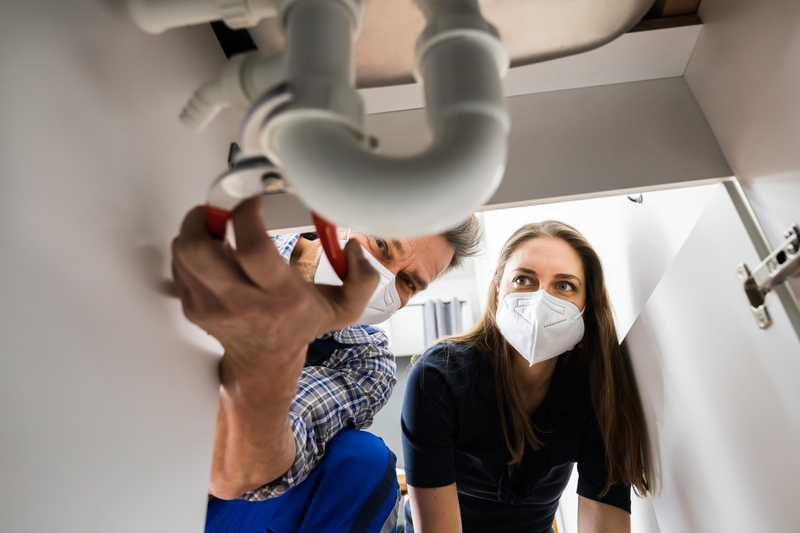
Preventative Measures for Blocked Drains
Regular cleaning and maintenance routines are essential for preventing a clogged drain and maintaining optimal drain function. Neglected drains can accumulate residue, hair, soap scum, and other debris over time, leading to blockages and unpleasant odours.
- Avoid Pouring Grease and Oil
- Use Mesh Screens or Drain Guards
- Flush with Hot Water
- Run Cold Water During and After Use
- Regularly Clean Drains
- Avoid Flushing Inappropriate Items
- Schedule Professional Drain Cleaning
By implementing these preventive measures and being proactive in maintaining your drains, you can ensure clean and free-flowing plumbing, reducing the likelihood of clogs and minimising the potential for costly repairs.
If you need your blocked drain unblocking, please do not hesitate to contact us. Here at Cotswolds Drainage, we're here to help with your blocked drain needs with our advanced drain unblocking equipment from a well-trained professional drainage engineer.
Get in touch
Contact our friendly and professional team via form, phone or email for any drainage issues you may have.
From blocked drains to septic tank repairs and replacements, we're here to help. We have over 25 years of experience and offer 24/7 emergency callouts.
-
01386 882324
-
WhatsApp
-
This email address is being protected from spambots. You need JavaScript enabled to view it. -
See what our customers think
